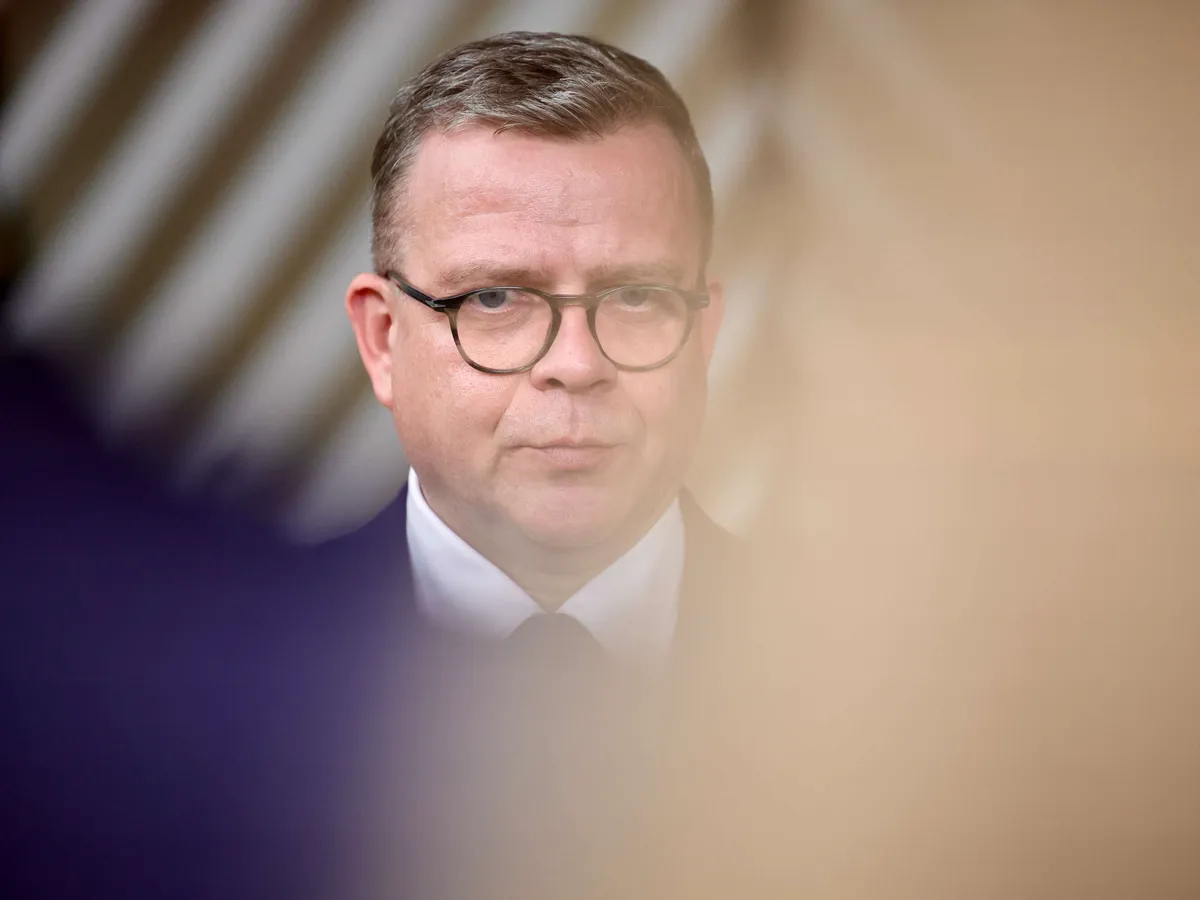The heads of state of the European Union member states have gathered in Brussels for a summit.
The topics of the European Council are Ukraine, the Middle East, competitiveness and migration. President of Ukraine Volodymyr Zelenskyi participates in the meeting and presents his winning plan to the EU leaders.
Finland is represented at the meeting by the Prime Minister Petteri Orpo (cook). According to him, the European Council must send a clear message that despite the difficult world situation, the EU will support Ukraine as much and as long as necessary.
“We must not forget Ukraine”, Orpo stated when he arrived at the meeting.
Orpo said that a high-level political conference will be held in Finland on Saturday. The political leadership of Ukraine participates in it.
The conference will be held in a hybrid format and is part of the Ukrainian peace plan.
“I am proud that, as vice-chairman of this section focused on environmental issues, I can host this meeting over the weekend.”
In the summer, the G7 countries reached an agreement that Ukraine would be given a loan of 50 billion dollars, the return of which would be used for the repayment and expenses of the frozen Russian assets. However, how the package will be financed between the EU and the US is open.
The US wants the EU to first extend the renewal interval of sanctions on frozen assets. Hungary has not agreed to this. It wants to wait for the outcome of the US presidential election first. Hungary is able to put a stop to the decision, because sanctions decisions require the unanimity of all 27 member states in the EU.
How much pressure is Hungarian Prime Minister Viktor Orbán being pressured at this meeting? Do you think he will agree to extending the sanctions renewal interval?
“The pressure has to be hard. He cannot block Ukraine’s support. When a global solution is close, the EU and the G7 have found a solution, we cannot let one man block it. Solutions must be found. This issue is on the table today,” Orpo stated.
The situation in the Middle East is like a powder keg
The meeting will probably have a long discussion about the tense situation in the Middle East.
Israel has attacked UN UNIFIL forces in Lebanon. Several peacekeepers have been wounded in the attacks. The EU has condemned the attacks.
“The situation in the Middle East is a powder keg, prone to fire. The first thing is that the cycle of revenge must be stopped and escalation avoided at all costs. There are huge risks for a wider conflict,” Orpo stated.
Foreign minister Elina Valtonen (kok) said at the beginning of the week that the EU is currently considering additional sanctions for Israel.
Earlier this year, the EU has already imposed sanctions on Israeli settlers who have committed violence against Palestinians.
One form of pressuring Israel could also be the suspension of the association agreement between the EU and Israel. The agreement includes, among other things, customs benefits.
Orpo said he would raise the need to convene the Association Council at the meeting.
“I want us to work together with the EU in sanctions policy.”
New solutions for migration management
In their meeting, the heads of the EU will also have a long discussion about migration.
Elections in various parts of Europe have recently seen that anti-immigration parties are succeeding even better. This has increased the pressure for so-called “innovative solutions” to manage migration.
Italy has this week transferred the first migrants rescued from the Mediterranean Sea to outsourced reception centers in Albania. They operate under Italian law.
In Europe, the idea of establishing return centers outside the EU is also in the air. EU interior ministers discussed the matter last week.
The return center is a place where asylum seekers who have received a negative decision are returned to their country of origin or home country.
Orpo was asked what is Finland’s position on the outsourcing of return centers. According to Orpo, the position is defined in the government program.
“We are ready to explore cooperation with third countries, and also to examine the possibilities for this type of solution. There is nothing concrete yet, so I will not take a further position on this.”
In Orpo’s opinion, it is now worth taking an open and “non-black-and-white” approach to what kind of solutions could be found.
